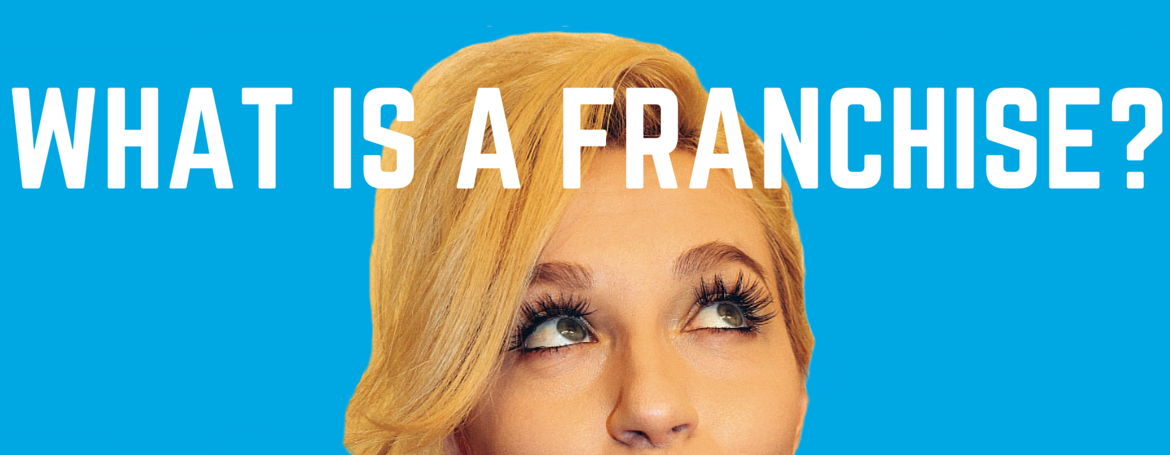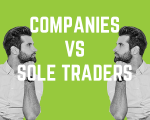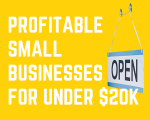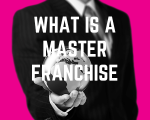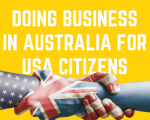What is a Franchise Business?
What is the difference between a franchisor and a franchisee and what are their roles? August 26, 2016In Australia near half a million people are working directly in franchising according to the franchise council of Australia. But we did a survey which revealed that over 60% of people struggle to define what a franchise business model really means. It’s time to make the business world even more accessible. Let’s answer some commonly asked questions!
Table of Contents
What is a franchise business?
A franchise business is when the business owner, or a “franchisor”, gives legal permission to a third party to use the name, trademark and business model of their company. These business partners are commonly referred to as “franchisees”. When you buy a franchise you buy the authorisation to represent a company as an agent, a salesperson, or a service provider. The legal license is granted either by the company itself or by the government. This is a common way to expand your brand to new locations.
If you’re looking to buy a franchise, proceed with caution – there’s a lot of research to be done before signing the contract with a company. For more detailed information read our guide on steps to buying a franchise.
What is a franchisor?
A franchisor is a company or a person, which provides a licensed privilege to people to work under their brand name. Unlike employers, franchisors partner with people, they don’t hire them. The franchisor should provide assistance, training sessions, merchandise and other essential things to carry on the business.
The franchisor has the interest to keep the business going strong and the brand’s reputation pristine. To be trustworthy, the brand needs to be consistent with the quality of the services and products. This relies on each franchise owner. And that’s why we can safely say that the company succeeds if the franchisees do.
What is a franchisee?
A franchisee (or a franchise owner), is a person or a group of people, who buy the right to distribute services or goods. They pay an initial fee to the company they’ve chosen, in return for training and support. A franchise owner can be:
A person or a group of people without experience
These people would like to invest in a secure business, receiving all the training from the franchisor. The franchisee can work by themselves or manage a team without engaging in the actual work. Example:
- A person buys a cleaning franchise and they hire a team, which they only manage.
- A person buys a gardening franchise, they don’t have a team and they’re both the franchisee and the person, who does the work.
Both options have pros and cons. It depends on what your personal preferences are and how much you’re willing to invest.
A business owner with experience in the field
When you have the experience, you don’t need to invest in training or getting a certificate. Buying a franchise is a good strategy to secure the future of a small business. You get different perks by contracting with a company for example like receiving leads on a regular basis, finance management and other depending on the franchise company.
What is a franchise disclosure document (FDD)?
The franchise disclosure document (FDD) is a legal document that sets the bonds of the partnership between the franchisor and the franchisee. According to the Franchising Code of Conduct, the contract has to be written, oral or implied. It grants the permission to carry out service under the trademark of a given company in exchange for a fee. If all of that is covered – you have a franchise agreement. When signing the contract both parties have certain requirements and make sure the two sides are completely met. You can hear people commonly referring to it as “commercial marriage”.
What is a franchise fee?
The franchisee fee is the tax the franchisee pays for the business. You can find the information about the required initial capital in the FDD. Read the agreement carefully before you sign it. There’s the information about the initial costs and if there are any ongoing fees. If you’re running a business, it’s crucial to carefully calculate the required initial capital and the additional taxes. Otherwise, it can be fatal to any business.
Some companies, like us, don’t have ongoing royalties. You can ask us anything here.
How to buy a franchise?
Owning a franchise can be easily profitable and often times you start making money from day one. We have a broad step-by-step guide on buying a franchise, read it if you’re interested in learning more. Here’s a short version:
What to look for when you’re choosing a franchise company:
- It needs to have a good brand. It needs to be recognisable and catchy.
- It needs to have stable finances. The company has to be profitable before considering starting a franchise.
- It needs to have a marketing strategy. The company needs to know the market more than well and be prepared for changes.
- It needs to provide training sessions. The business cannot operate properly if the partners or the employees don’t know the business concept.
If you consider signing a contract there are a few questions you need to ask beforehand:
- Can I have a copy of the FDD?
- What will be the costs?
- How much am I expected to earn?
- Will I and my employees receive training?
- What skills and equipment do I need to have?
After you have these answered, you will have a better idea of what are the pros and cons of partnering with a given company. You can read our FAQ to get an idea what questions are asked most frequently.
Find out how we can help you
We at Fantastic Services Group provide a variety of franchise options in the home service sector. You can start a business or expand your existing one in cleaning, gardening, handyman or pest control. We can find a way for every budget, come up with a financial plan specially tailored for you. Contact us to learn more information on how to start.
